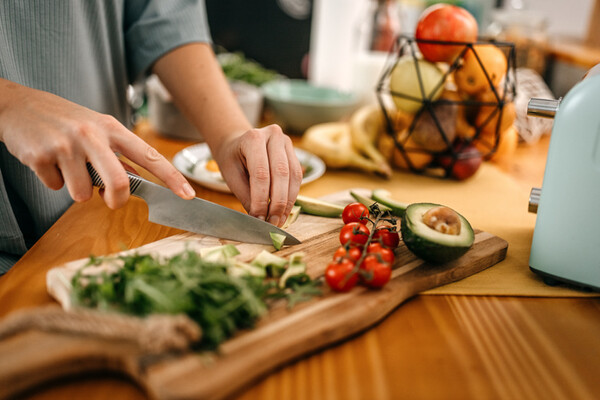Chemotherapy kills not only cancer cells but also normal cells in the body, exposing you to various health problems. In particular, side effects of chemotherapy such as nausea, loss of appetite, and diarrhea often worsen nutritional status, which determines immunity, making you vulnerable to infections.
This is why it's important to eat well and exercise moderately, as well as rest well, in order to stay healthy during chemotherapy. So, how should you deal with nausea, loss of appetite, and diarrhea during chemotherapy?
On the Korean Society of Medical Oncology's YouTube channel, KSMO TV, Noh Min-young, a nutritionist at St. Mary's Hospital in Seoul, provided various solutions to tackle these issues during chemotherapy.
Nausea: Avoid tight clothing. To relieve nausea, you should avoid wearing tight clothing. Wear comfortable clothes, especially when eating, as too much constriction can cause more bloating.
Also, nausea symptoms tend to be exacerbated by olfactory stimuli, so it's a good idea to ventilate the room before eating if you can't eat due to nausea.
"It's a good idea to eliminate the smell of food, and avoid foods with strong odors at that time," Noh said.
It's also not a good idea to keep your stomach empty for too long because of nausea. "Sometimes people report feeling more nauseous when they try to eat on a very empty stomach," she said. “It's better to eat when you're not too hungry."

Loss of appetite: Eat small meals at regular intervals. A loss of appetite is common during chemotherapy due to changes in taste and smell. However, if you don't eat throughout your treatment, you're likely to become malnourished and your health will suffer even more.
"The easiest way is to eat the foods you want as often as possible, in small portions," says Noh. "Even if you don't have an appetite and aren't hungry, you should still eat as much as you can when the time comes."
It helps to eat your favorite foods and to eat in an environment that makes you feel comfortable. "It can also be helpful to change where you eat or what you're doing," says Noh, "such as playing music to get you in the mood or switching to your favorite tableware."
When it comes to flavors, something sour and refreshing can help whet your appetite. "I recommend things like fruit dressing, salads, and cold dongchimi (winter kimchi)," says Noh. "Taking a brisk walk before meals will also help you eat better."
During chemotherapy, your sense of taste changes and you may notice different flavors in your food, which can make you lose your appetite even more. "Sometimes when you eat meat or fish, you don't want to eat it because it tastes bitter or metallic," says Noh. "In that case, you don't have to insist on eating it, and you can replace it with eggs or tofu, which are more comfortable. Gargling frequently before and after meals to keep your mouth clean can also help."
Diarrhea: Focus on staying hydrated. Another side effect of cancer treatment is diarrhea. It's not recommended to force yourself to eat when you have diarrhea. "The most important thing is to drink enough fluids to prevent dehydration," says Noh, who advises against restricting fluids because of diarrhea.
There are also tips for minimizing diarrhea flare-ups when you start eating again. "Avoid foods that are too fatty or spicy when you start eating, and avoid dairy products if you are lactose intolerant," explains Noh.
Avoiding some sweeteners in your food can also help prevent diarrhea.
"Some popular sweeteners, such as sorbitol, are claimed to be healthy, but if you eat too much, it can cause diarrhea, so avoiding them a bit can be a good idea," Noh explained.
When you have mouth sores: Have an immunity-boosting diet. Mouth sores are a special sign during cancer treatment. "It happens when your immune system is down,” Noh said. So how should you eat to boost your immune system?
There are a lot of different nutrients involved in immunity including protein, zinc, iron, copper, selenium, and all the vitamins, so you need a little bit of everything, she emphasized.
The best way to make sure you're getting all of these nutrients is to eat a variety of foods, not just one particular food.
"The most important way is to eat a variety of foods, including fish, vegetables, fruits, and dairy products," Noh said, revealing a one-week diet for cancer patients.
A diet for cancer patients may not seem like anything special, but it is. There are five nutrients - proteins, carbohydrates, lipids, vitamins, and minerals - that should be included in a daily diet.
Three meals a day and two snacks a day containing these five nutrients, and trying to eat at least a little bit at the right time, is the way to take care of your immunity while undergoing chemotherapy.

